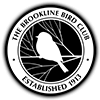Dressing and Preparing for Birding
- Wear loose, light clothing that can be layered for comfort. Many birders prefer clothing with lots of pockets for accessible storage of glasses, phone, camera, keys, and other must-have items. Light colors will allow for easier tick checks. Avoid wearing white, as this color seems to distract or alarm birds. Avoid orange and other bright colors, too.
- Be in the know about ticks.
- Some outdoor clothing manufacturers sell permethrin-soaked (tick and insect repellent) clothing including pants and shirts. For many, it’s worth the investment. Permethrin also comes in a bottle and can be applied to treat clothing.
- Try to wear “quiet clothing” that doesn’t swish when you’re in the field. That rustling noise can be distracting and prevent you and others from hearing bird vocalizations and movements, and might scare some birds away.
- Wide-brimmed hats keep out the sun and glare and reduce insects at your neck.
- Pack a windbreaker or rain gear to be prepared for any weather. Layer up in colder weather and peel off layers as temperatures rise.
- Sturdy footwear protects your feet on rugged terrain. Consider tucking pants into socks to protect yourself from ticks. This is not just a “fashion statement.”
- Bringing insect repellent is always a good idea. Spray only you, nothing else.
- Bring a non-disposable water bottle. Maybe some snacks. Often birders are out longer than they’d anticipated, and birding while hungry can mean cranky, less effective birding. As with any adventure outdoors, “pack in, pack out” and take your trash with you.
- Some birders choose to wear their binoculars on a birding harness, a device designed to keep the weight of binoculars off your neck.
- Field guides and birding apps: everyone has their favorite guide, and carrying one in the field can be cumbersome. Check out size, accuracy and reputation before purchasing. Useful apps include Cornell Lab’s Merlin and the Audubon app.
- Avoid playing a bird call or song in the field, and if you must do so for identifying a vocalization, do so very quietly.
- Playback – playing a bird call, song or chip note in the field, often to call in a bird – can be distracting and threatening to the birds themselves, especially during migration and breeding, and will disorient other birders hearing that song or call.
- Overwhelmed by how much you seem to “need” while birding? Wear a light backpack and store your stuff inside.
Don’t fret: enjoy those birds!
[/fusion_text]